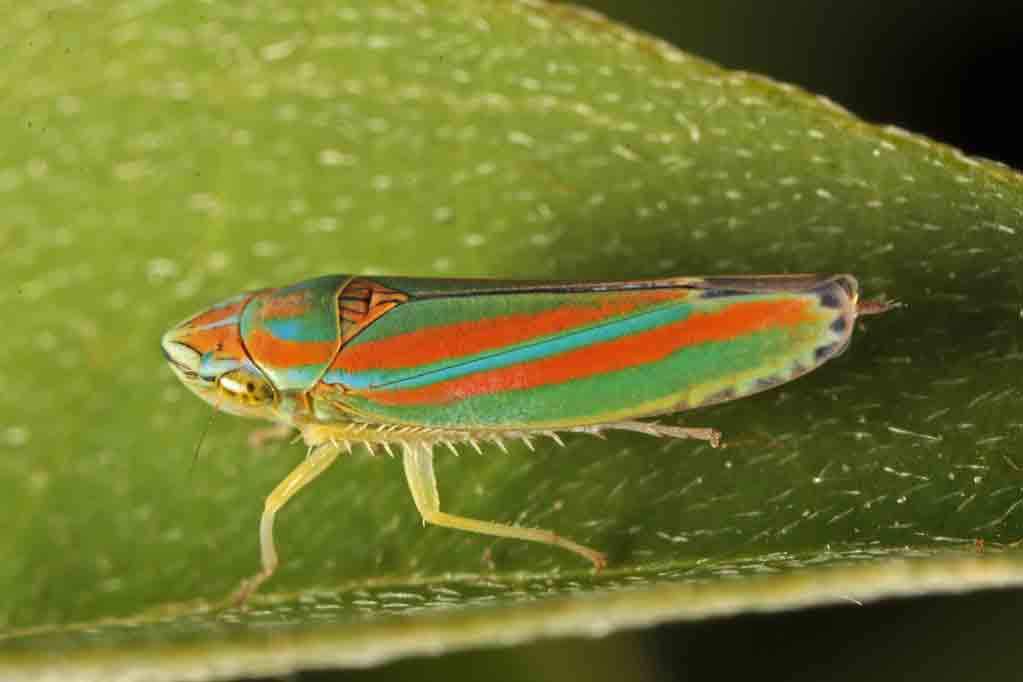
More Leafhoppers
Leafhoppers are lime green bugs about the size of a grain of rice. Though they're small, they are ferocious.
They pierce a potato plant's leaves and stems with their mouthparts and suck out the sap and other liquids. Their saliva also contains a toxin that causes plant parts to dry, curl and rot, or hopperburn. They also damage other plants in the Eastern U.S., and cause millions of dollars in damage every year.
Entomologists at the University of Maryland and Queens College in New York have been examining six decades of records. They found that potato leafhoppers, which are migratory pests, arrive in the fields an average of ten days earlier now than they did in the early 1950s. Not only that, their infestation is most severe during the warmest years.
Fewer Leaves and Hops
As climate change brings higher temperatures, leafhoppers are going to wreak more havoc. The researchers suggested that farmers need to prepare for the effects of climate change on migratory pests. Leafhoppers not only like alfalfa, which is an important feed for livestock, they also like hop plants, which are used in beer.
Unless global warming is stopped, leafhoppers are only one of many migratory pest species that are likely to change their migration and feeding habits. Rising temperatures are going to make it harder to manage these pests and lead to higher crop losses. And fewer hops for the beer.
Read More:
"Climate Change and Phenology: Empoasca fabae (Hemiptera: Cicadellidae) Migration and Severity of Impact" (PLOS ONE)









